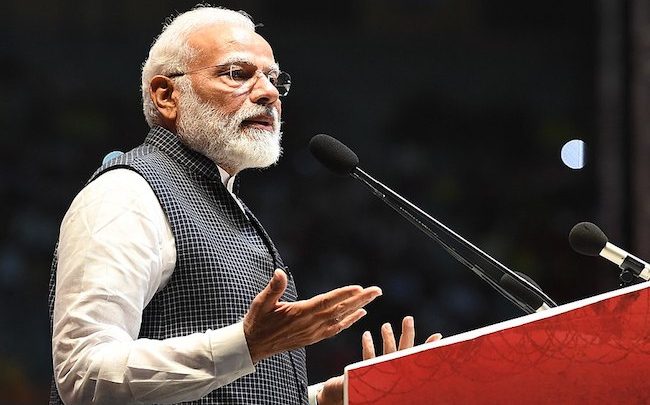Questioning the novelty of India’s new normal

By Haris Bilal Malik
In recent years Indian notions of pre-emption and so-called surgical strikes have been referred to as the ‘new normal’ by many in India. These have contributed to further affecting the security, stability and strategic equilibrium in the South Asian region. This is evident in how the top-brass within the Indian military has repeatedly asserted that India reserves the right to punish Pakistan with such notions of preemptive strikes across the Line of Control (LoC) under its limited war doctrines, which themselves belie a desire to wage a low-intensity conflict across the border. At the doctrinal level, India has been planning for this for quite some time as evident from its 2004 Cold Start Doctrine (CSD) as well as its more recently released doctrines such as the 2017 Joint Doctrine of the Indian Armed Forces (JDIAF) and the 2018 Land Warfare Doctrine (LWD). These doctrines are all based upon proactive strategies and indirect threats of preemptive strikes against Pakistan. Based on the current patterns of Indian aggression these ideas hold immense significance when considering the latest rounds of tensions over the disputed territory of Kashmir as witnessed in the short-lived military engagement between the two countries in February 2019.
Inspired by such notions and in typical fashion, the new Army Chief of India Gen. Manoj Mukund Naravane wasted little time in blaming Pakistan for sponsoring terrorism in India. The same day he took charge of his new appointment he claimed that India reserves the right to respond in the same way it had previously done through its so-called ‘surgical strikes.’ Moreover, he openly asserted to physically taking control of Azad Jammu and Kashmir (AJK) if his government ordered him to do so.
However, such assertions from the Indian political and military leadership are simply repetitions of the same statements that have been made by Prime Minister Modi, Mr. Rajnath Singh, and former Army Chief Gen. (R) Bipin Rawat in the recent past. Representing the same aggressive and jingoistic posturing, there is not much novelty in these statements. In fact, even in this so-called ‘new normal’ which these leaders have repeatedly described over the last few years, there is nothing new at all.
Even the oft-quoted notion of a preemptive ‘splendid first strike‘ is not new for Pakistan as it had already formed a key part of the discourse surrounding the Indian and international strategic community since the years 2016-2017. According to this, if in India’s assessment, Pakistan was found to be deploying nuclear weapons, as a contingency, India would likely resort to such a splendid first strike which it has always hinted as being a nuclear strike. As such all this does is prove Pakistan’s pre-existing doubts over India’s long-debated ‘No First Use’ (NFU) Policy. Yet, what’s worth noting here is that this overt shift towards declaring a more offensive doctrinal posture from India represents a more focused attempt at undermining the deterrent value of Pakistan’s own nuclear posture, thus ultimately destabilizing the South Asian region.
Instead, the only thing new to come out from all these assertions from Indian leaders is the prevailing fascist mindsetwithin India that is being fueled by a false sense of racial superiority and hatred against Muslims. This was clearly stated by Prime Minister Imran Khan in his tweet when he attributed the cause of such provocations to the RSS’s extremist ideology. Hence, Pakistan perceives the recent statements from India’s top military brass as also being wholly politically inspired and as a routine attempt to divert attention away from the rampant domestic socio-economic issues currently plaguing India. The fact remains that Pakistan’s response to this Indian self-proclaimed ‘new normal’ which was on full display during the Balakot crisis itself set a clear example of its full spectrum deterrence. Contrary to the notion that a conventional asymmetry of sorts exists between the two countries, Pakistan had responded conventionally and more befittingly while holding its own toe to toe. In other words, Pakistan proved that it can also restore deterrence via conventional means despite the quantitative edge of India’s conventional forces and military hardware.
It is also worth noting that while India is spending billions of dollars on its military modernization program both in terms of its conventional and unconventional acquisitions; allocating billions for defence spending does not necessarily guarantee military supremacy. Especially if the adversary is determined to thwart any such attempts right from the outset. India’s actual capabilities still differentiate widely from what its political and military leadership inspires and projects itself to be. In fact, there is a huge gap between the Indian leadership’s expectations and what its military can actually deliver. As apparent not only in the absurdity of Gen. Naravane’s statement but also in Prime Minister Modi’s and others, the credibility of such threats already remains highly questionable.
Hence at the present, it seems that India is more keen on simply projecting military supremacy vis-à-vis Pakistan as opposed to actually attaining it, as reflected in the statements of its political and military top brass. Its favored notions of preemption at the doctrinal and strategic levels are evidence of such aspirations. As such the increasingly provocative posturing against Pakistan in the form of this so-called ‘new normal’ seems to represent simply a jingoistic approach to manipulate Indian public sentiment in the ruling government’s favor. However, the fact remains that Pakistan has already nullified such notions of preemption in the recent past and has proved it time and again. As such India’s aggressive posturing seems to be collapsing on itself with its self-proclaimed ‘new normal’ unlikely to pose any serious challenges to Pakistan’s strategic posture at least for the time being.
Haris Bilal Malik is working as a Research Associate at Strategic Vision Institute (SVI) Islamabad, Pakistan.




